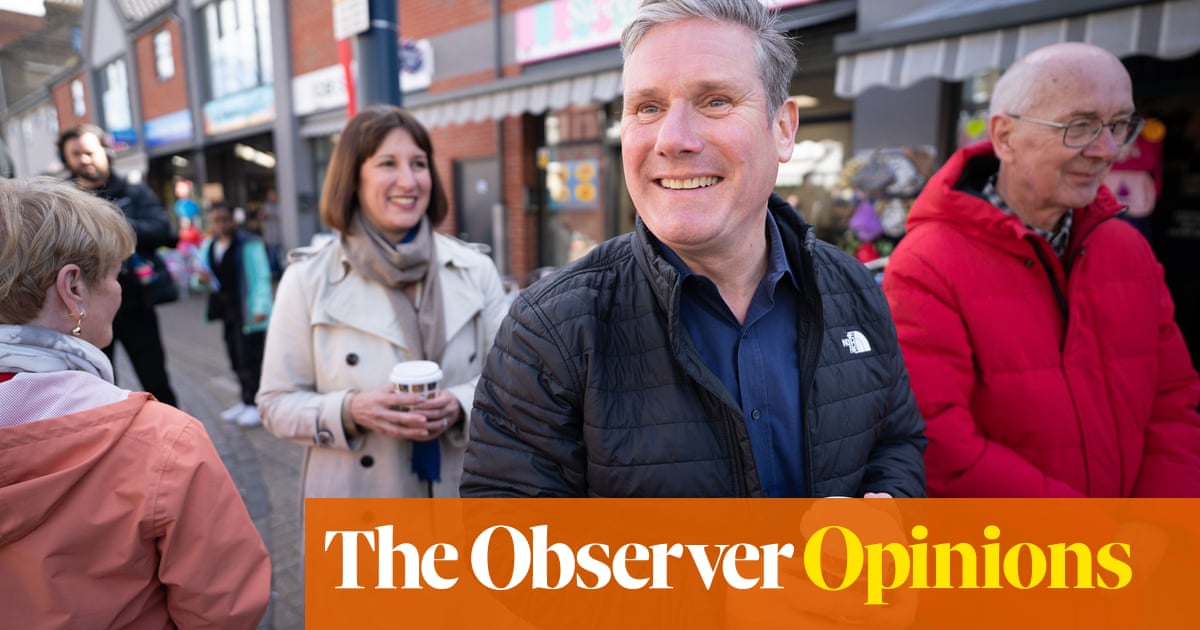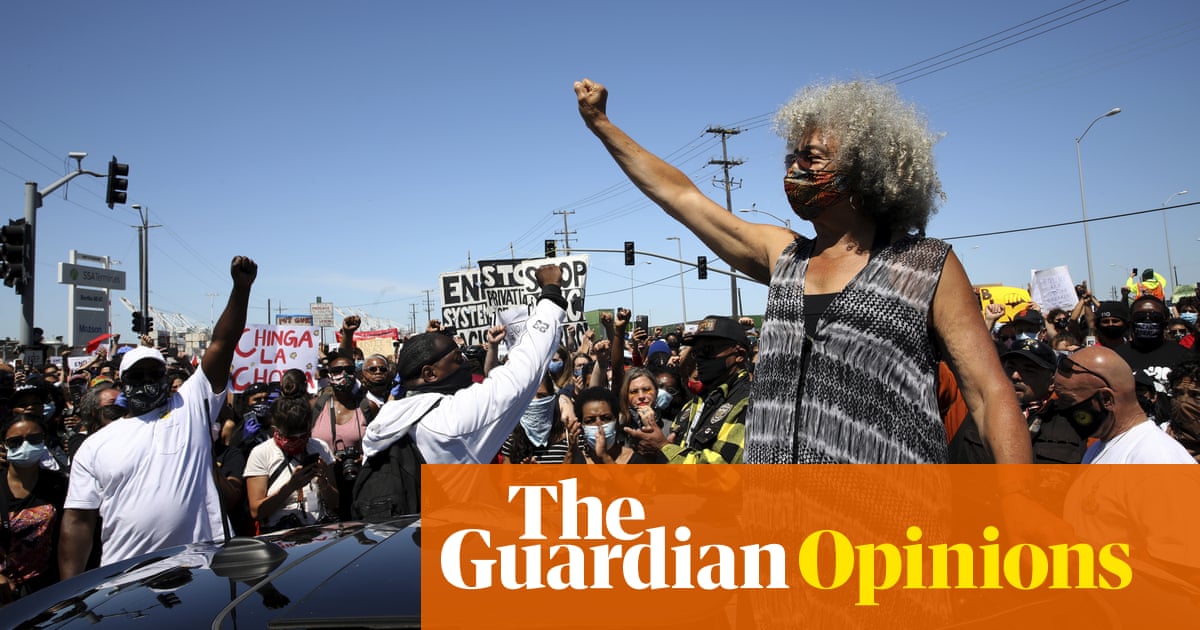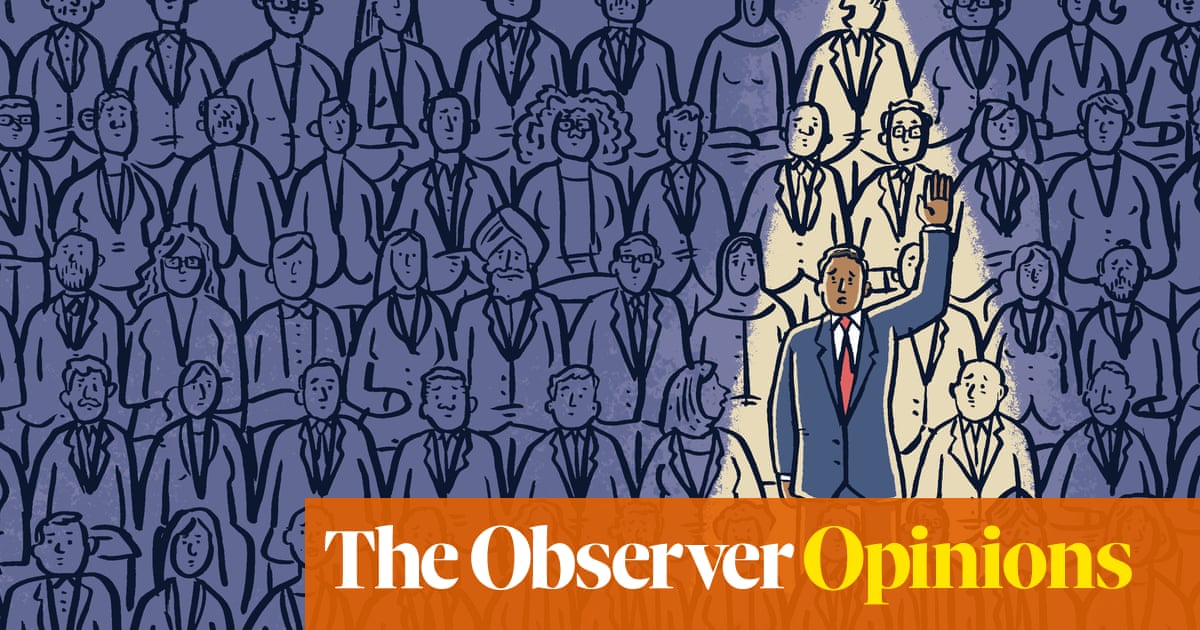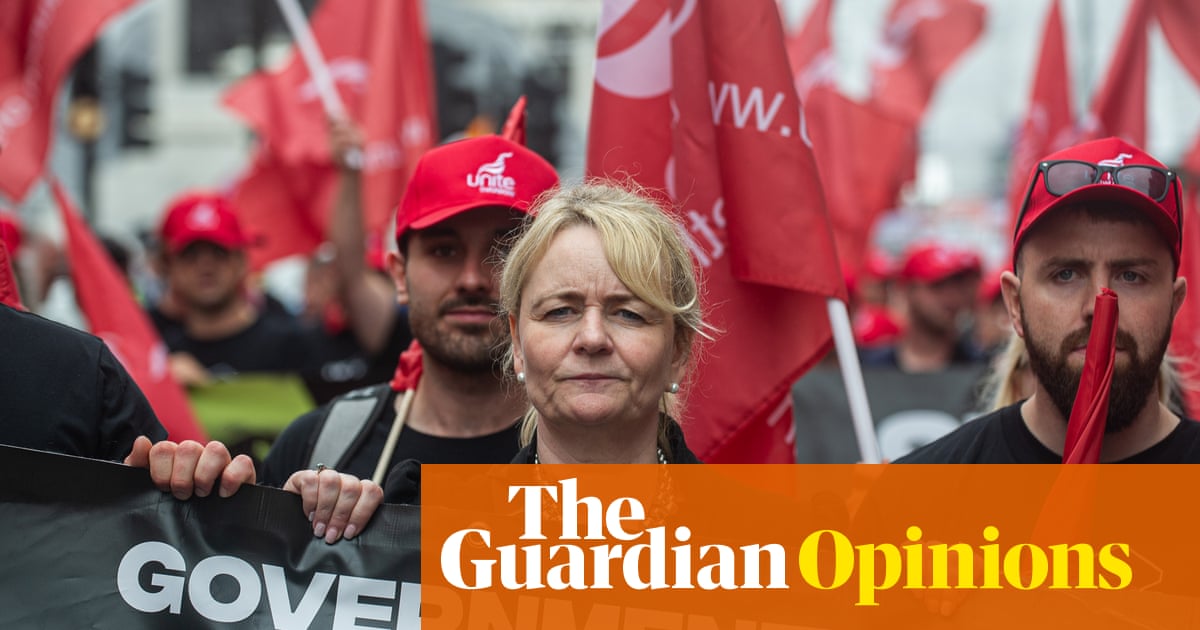
he postmortem into the Labour party’s defeat compiled by Labour Together – a joint enterprise straddling different strands of the party – is as impressive as it is sobering. Labour lost votes across the board, but particularly in working-class communities that the party was founded 120 years ago to represent. A combination of Jeremy Corbyn’s cratered personal approval ratings, Brexit and an overall policy package widely deemed unbelievable are all blamed. As the report notes, Labour’s troubles did not begin under Corbyn or his predecessor, Ed Miliband: its electoral coalition “had been fracturing for a long time”, mirroring similar traumas afflicting its European sister parties.
Unlike the 1983 Tory landslide, when Margaret Thatcher won the youth vote, Labour is hegemonic among the young: it won 62% of the under-25 vote and just over half of 25-34-year-olds. But it has become a fringe party among the old: the Tories were an astonishing 47 points ahead among the over-65s. This partly explains why Labour has become dominant in cities, and has dramatically retreated in towns, including being smashed in constituencies it has represented for generations. As research by Centre for Towns shows, the populations of big cities became younger between 1991 and 2011, while towns and villages got older. While the over-65s population of veteran Labour MP Dennis Skinner’s former constituency in Bolsover surged by 35.2%, its under-25s fell by more than 16%; in Kirkby-in-Ashfield, also lost in 2019, the number of older citizens went up by over 40%, while younger voters fell in number.
How does Labour solve such an existential problem? Not easily. Regional inequality is perversely hammering the party: many younger people feel they lack opportunities in smaller towns, move to big cities, and take their Labour votes with them. They are attracted to Labour because of economic insecurity, having been clobbered by spending cuts and the housing crisis, and because of keenly held progressive social values they fear are under attack. Older voters, meanwhile, have rightly been protected by the triple-lock on pensions, are largely homeowners who have benefited from rising house prices, and tend towards social conservatism. Bridging this gap is a formidable challenge: younger voters have little sentimental attachment to Labour and will take their votes elsewhere if they feel the party has abandoned them. Indeed, Labour should fear the Lib Dems under the prospective leadership candidate, Layla Moran, who has unveiled a series of left-leaning policies.
The Tory architects of the EU referendum were political geniuses, whether inadvertently or not. Brexit provided a means to detoxify the Conservatives in the eyes of older working-class voters who had suffered under Thatcherite deindustrialisation, wreaking havoc on Labour’s electoral coalition. The hung parliament, which delighted Corbyn’s supporters, sowed the seeds for Labour’s obliteration. The resulting deadlock allowed a well-funded remain faction to become increasingly emboldened about reversing the referendum result altogether, rather than settling for a soft Brexit. Leavers, on the other hand, could claim that the democratic outcome of the referendum was imperilled, and the collapse of Theresa May’s authority allowed them to portray any Brexit deal as a sell-out. Both factions played off each other in a positive feedback loop. Labour’s Brexit compromise – leave the EU but with a close relationship – was burned to a crisp, vilified by both sides.
As the Labour leadership desperately tried to keep both factions on board, and as message discipline collapsed, with prominent politicians representing remain or leave constituencies making conflicting public arguments, Corbyn was left looking weak and indecisive. According to YouGov polling at the beginning of 2019, more than three-quarters of the reasons for the collapse in his polling were directly or indirectly to do with Brexit.
According to the same pollster, nearly half of Labour switchers to the Tories in 2019 identified Brexit as their reason, followed by more than a quarter who pointed to party leaderships. But it is facile to say that Labour should have resisted the siren call of a new referendum. At that moment in time, it had the overwhelming support of the membership, and Corbyn felt that the party could not stay neutral, privately noting, “We’ve taken the membership too far.” He had been elected as the tribune of the members, after all, and felt he had no option.
The report rightly assails the hubris that followed the 2017 election. There was no detailed assessment of why Labour failed to win and no meaningful strategy paper was ever written. The party was, the report notes, completely unprepared for the election, lacking a clear message, and it was unclear who was in charge. This is all true. In 2017, there was a unified Labour leadership which – as the recent leaked Labour report detailed – was up against a hostile headquarters. In 2019, the leadership had become bitterly divided, partly over the handling of antisemitism but principally over Brexit. Leading figures fell out badly.
A palace coup in October against the chief of staff, Karie Murphy, was intended to lead to a six-month long reorganisation of the operation, but the election quickly intruded, and it merely compounded bitter divisions and left no clear authority figure in place. The splits meant that throughout the campaign policy, communications and events were all working separately. Unlike 2017 – when “for the many, not the few” encapsulated a modern class politics that resonated – there was no clear theme. The leadership had become addicted to the idea that dropping new policies was the only means of securing positive coverage and deflecting from the divisive issue of Brexit: but the policy incontinence left the public bewildered and, ultimately, contemptuous.
Labour was undoubtedly up against an overwhelmingly hostile media that vilified Corbyn, and many internal opponents waged a scorched earth policy too. But it would be a mistake to read this report and conclude that any politics that seeks to transform society – rather than trim round the edges – is ultimately doomed. As the report concludes, Labour must be “the party of big economic change for the whole country and every part of it”. In this age of upheaval, that is truer than at any time since the second world war. Let us hope Keir Starmer and his team take note.












